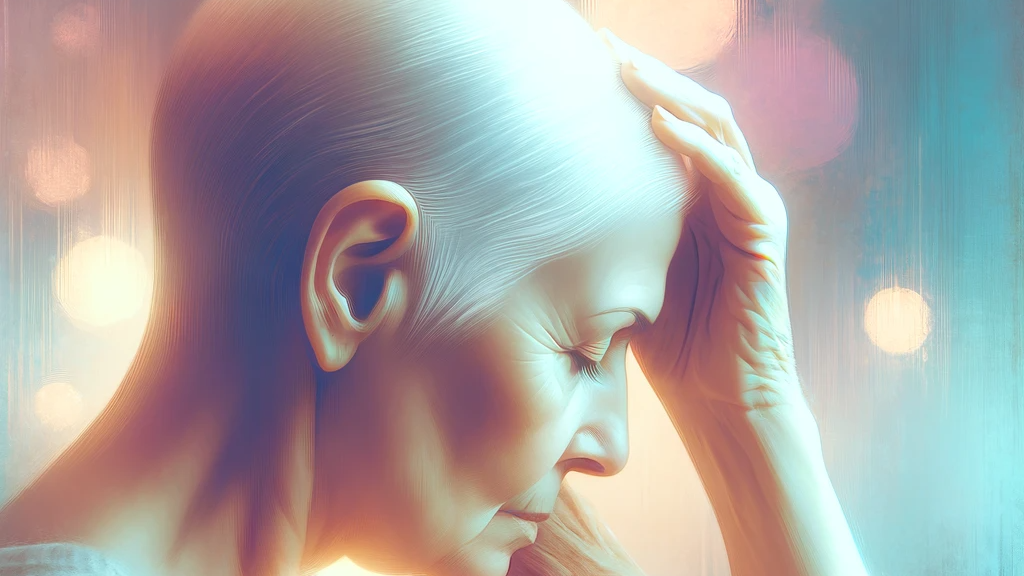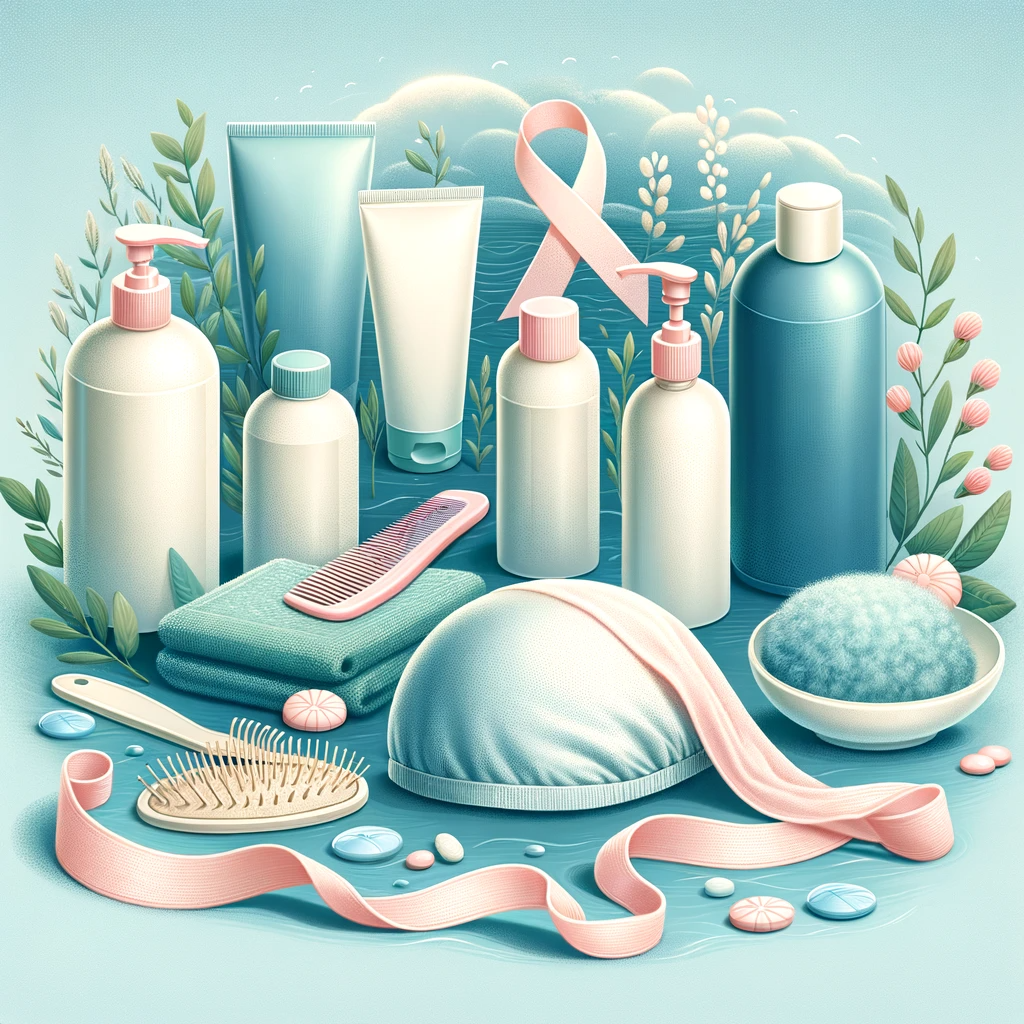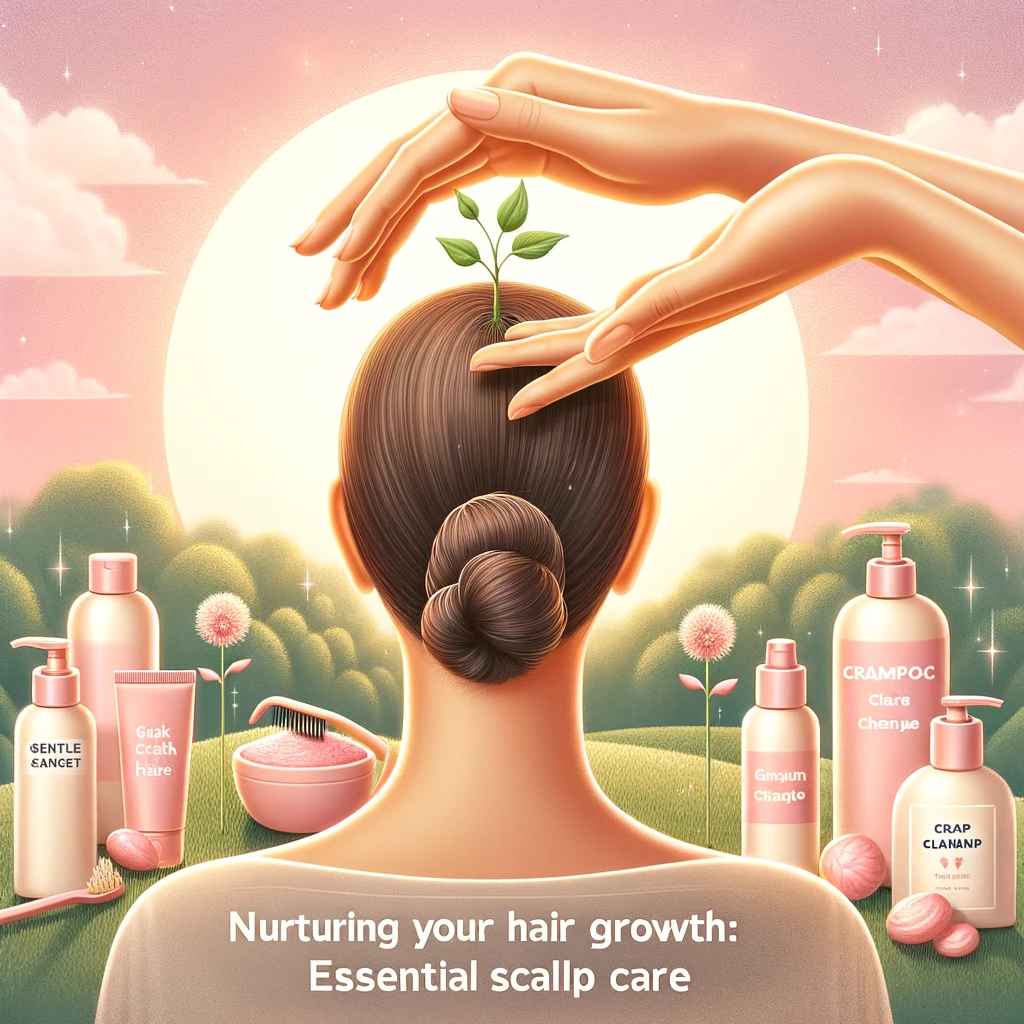Navigating Chemo Hair Loss: Essential Hair Care Strategies for Aging Seniors Undergoing Cancer Treatment
Discover essential strategies for managing chemo-induced hair loss in aging seniors. Learn about gentle hair care, scalp cooling, and coping methods during and after cancer treatment. Gain insights on nurturing hair regrowth post-chemo for a comfortable, dignified journey through cancer recovery.

I was recently contacted by a family caregiver. During her caregiving journey, she found out that she had a reoccurrence of breast CA. She asked me about what to look for in hair care products that she could start using before, during and after her treatment. I did the research and found a company that specializes in individuals that are receiving treatment for cancer. In fact, this company also works with aging women with thinning and listless hair. I thought it was important to share what I found here on my site. 231
Cancer treatment, especially chemotherapy, presents various challenges for aging seniors, not least among them being the distressing experience of hair loss. Chemo hair loss, medically known as chemotherapy-induced alopecia, affects not just the hair on one's head but can also lead to thinning or loss of other body hair, including pubic hair. This article aims to offer insight and practical tips on managing hair loss during cancer treatment, focusing on gentle hair care products and strategies that can help seniors cope better with this side effect.
Understanding Chemo Hair Loss
The Impact of Chemotherapy Drugs on Hair Follicles
Chemotherapy drugs target rapidly growing cancer cells, but unfortunately, they also affect other rapidly growing cells in the body, including hair follicles. This leads to hair thinning, hair fall, and in some cases, complete hair loss. The extent and pattern of hair loss can vary greatly among cancer patients, influenced by the type and dosage of chemotherapy drugs used.
The Timeline of Hair Loss and Regrowth
Hair loss typically begins a few weeks after the start of chemotherapy treatment and can continue throughout the course of therapy. It's important for seniors to understand that hair regrowth can commence even before treatment ends, although the new hair may have a different texture or color initially.
Coping Strategies for Hair Loss During Cancer Treatment
Scalp Cooling: A Method to Prevent Hair Loss
Scalp cooling, also known as scalp hypothermia, involves reducing the blood flow to the scalp during chemotherapy sessions. By cooling the scalp, blood vessels constrict, potentially decreasing the amount of chemotherapy drug reaching the hair follicles. While scalp cooling does not guarantee the prevention of hair loss, it has shown promise in reducing its severity.
Choosing the Right Hair Care Products
Gentle Hair Products for Sensitive Scalps
Opting for mild shampoo and conditioner, preferably baby shampoos that are gentler on the scalp, can be beneficial. Avoiding harsh chemicals helps in minimizing scalp irritation and decreases hair tangles, which can lead to further hair fall.
Importance of Soft Brushes and Wide-Toothed Combs
Using a soft brush or a wide-toothed comb helps in managing hair gently. This is particularly important as hair becomes fragile and prone to breakage during and after cancer treatment.

Adopting New Hair Care Routines
Minimizing Heat and Chemical Exposure
Seniors should avoid hair dryers, curling irons, and chemical treatments that can stress the hair. Keeping hair short during treatment can decrease the weight on the scalp, reducing hair fall. Additionally, avoiding hair color treatments during this period is advisable.
Embracing Head Coverings and Cold Caps
Head coverings like scarves, wigs, and hats can provide comfort and warmth, especially as patients may feel cold due to hair loss. Cold caps, worn during chemotherapy sessions, might also be an option to explore.
Addressing Other Aspects of Hair Loss
Managing Loss of Pubic and Body Hair
Apart from hair loss on the scalp, chemotherapy can lead to thinning or loss of pubic and other body hair. Understanding that this is a common side effect can help in mentally preparing for these changes.
Supporting Emotional Well-Being
Losing hair can be emotionally distressing. It's important for seniors to seek support from their health care team, family, friends, or support groups. Organizations like the American Cancer Society and National Cancer Institute offer resources and support for coping with hair loss.
Post-Treatment Hair Care
Nurturing New Hair Growth
Once chemotherapy treatment ends, new hair growth may begin. This new hair may be of a different texture or color initially. Using mild thinning shampoos and gentle hair products can nurture this new growth.
Monitoring Changes and Consulting Health Care Teams
It's important to keep the cancer care team informed about any concerns related to hair regrowth or scalp health. They can provide guidance and recommend products or treatments if necessary.
Dealing with Chemo Hair Loss: A Guide to Post-Treatment Hair Care
The Aftermath of Chemotherapy and Radiation
The aftermath of chemotherapy or radiation often leaves hair follicles in a state of recovery, marked by rapid division post-treatment. This rapid division is crucial for hair regrowth. However, without proper care, individuals may struggle to achieve long-term hair growth.
The First 68 Days: A Crucial Detox and Regrowth Period
The initial 68 days following the last treatment are essential for detoxifying from medications and facilitating hair regrowth. Proper care during this period can significantly impact the quality of hair regrowth.
Nurturing Your Hair Growth Post-Chemo: Essential Scalp Care

Creating optimal conditions for hair growth becomes paramount after chemo. Gentle scalp care is vital for successful hair regrowth. Key tips include minimizing chemical exposure, using gentle itch relief methods, choosing the right hair products, and exercising patience during the first few weeks.
Navigating the post-chemo phase requires careful timing and adherence to appropriate practices. With the right guidance and dedication to scalp care, individuals can nurture their hair back to health. The journey through chemo and post-treatment can be smooth with the correct information and support.
We have done the research and have found a hair care system made specifically for those starting and going through chemotherapy.Check out www.ChemoHairCareCompanion.com
Conclusion
For aging seniors undergoing cancer treatments, dealing with hair loss requires a compassionate approach that encompasses both physical and emotional care. By adopting gentle hair care routines, exploring options like scalp cooling, and seeking support, seniors can navigate this challenging aspect of cancer treatment with dignity and comfort.
FAQ: Understanding and Managing Chemo-Induced Hair Loss
What causes hair loss during chemotherapy?
A: Chemotherapy targets rapidly growing cancer cells, but it also affects other rapidly growing cells in the body, including hair follicles. This can cause hair loss, as the follicles are unable to produce new hair while undergoing treatment.
Does chemotherapy affect body hair and pubic hair as well?
A: Yes, chemotherapy can lead to hair thinning or loss not just on the scalp but also other body hair, including pubic hair. The extent of hair loss varies among individuals and depends on the type and dosage of chemotherapy drugs.
Can radiation therapy also cause hair loss?
A: Yes, radiation therapy can cause hair loss, but only in the area being treated. For example, if you receive radiation to your head, you'll likely lose some hair from your scalp.
Is there a risk of complete hair loss with chemotherapy, and how can I decrease hair tangles during this time?
A There is a very small risk of permanent hair loss with certain chemotherapy drugs. To decrease hair tangles and prevent further hair loss, use a soft brush, avoid harsh hair treatments, and consider using detangling products.
How does hair grow back after chemotherapy, and can it have a different texture or color?
A: Hair usually begins to regrow a few weeks after the completion of chemotherapy. It's common for the new hair to have a different texture or color initially. This change is typically temporary.
What are some effective head coverings for hair loss during chemotherapy?
A: Head coverings like scarves, wigs, and hats can be helpful. Cold caps, which are worn during chemotherapy sessions, may also help reduce hair loss.
How does hormonal therapy impact hair loss and regrowth?
A: Hormonal therapy can contribute to hair thinning and loss, as it affects the hormones that play a role in hair growth. However, the impact varies among individuals.
What should I discuss with my health care team regarding hair loss when I begin treatment?
A: It's important to discuss the likelihood of hair loss, strategies to manage it, and any concerns you have about hair regrowth or scalp care with your health care team before you begin treatment.
Are there any specific hair care tips for managing hair during and after chemotherapy?
A: Yes, using gentle hair products, such as silicone-free shampoos and conditioners, avoiding heat styling tools, and minimizing chemical exposure are key. Also, gently drying your hair and avoiding harsh brushing can help manage thinning hair.
Can health insurance cover the cost of wigs or head coverings?
A: Some health insurance plans may cover the cost of wigs or other head coverings, but coverage varies. Check with your insurance provider for specific details.



